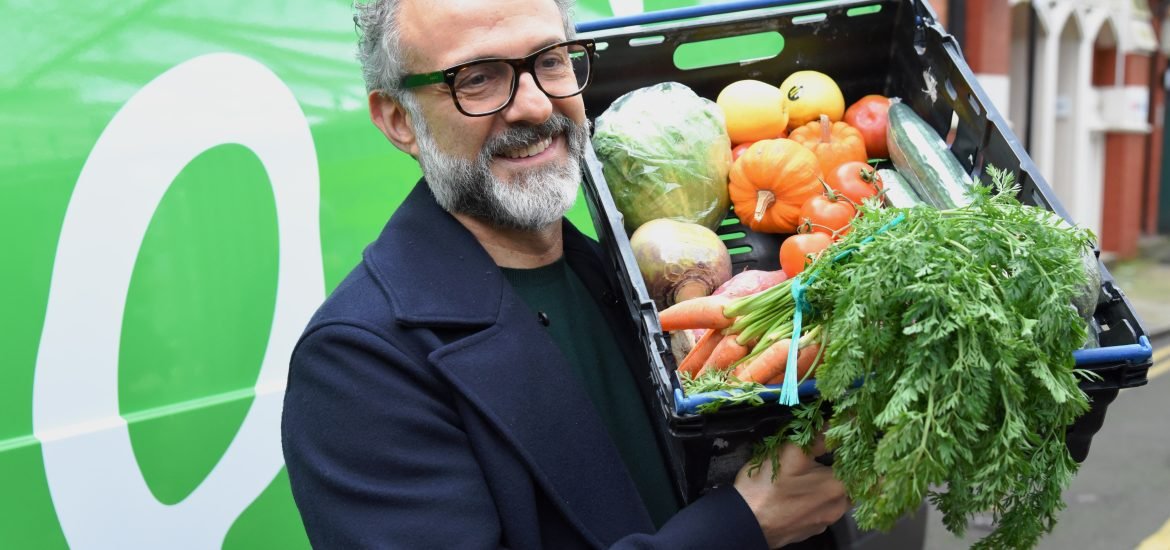
Italian chef Massimo Bottura plans to open two new restaurants serving free food made from supermarket scraps. Just like his first similar experiment in Milan, they will be accessible only to the poor.
Food waste is a huge problem globally. Each year 1.3bn tonnes of food, about a third of all that is produced, is wasted. About 45% of all fruit and vegetables, 35% of fish and seafood, 30% of cereals, 20% of dairy products and 20% of meat end up in your bin. “The average household of four is wasting about $1,800 annually on food that they buy and then never wind up eating,” says Dana Gunders, senior scientist at NRDC.
Another aspect of food waste never makes the front page: what to do with scraps? The cost of not eating our leftovers is significant for both our wallets and for the planet. Italian Michelin-starred chef Massimo Bottura, for on, takes the issue very seriously. In the recent years, he has become one of the main advocates against food waste.
“Imagine chefs embracing imperfect, discarded food and treating it with the same reverence they would a rack of lamb or ripe tomato. Imagine changing the perceptions about what is beautiful, nutritious and worthy of being shared”, he penned in an article on Wall Street Journal two years ago. “The leftover is a big problem if you don’t have a vision, if you don’t have the knowledge of what you can do,” Bottura says.
Bottura is some sort of a rock star in the food world. He is known to have to some extent reinvented Italian food. His restaurant in Modena, Italy, Osteria Francescana, flaunts three Michelin stars. It charges around 250 euros a head. But another restaurant of his – the Refettorio Ambrosiano – feeds the poor. Housed in an old theatre on the outskirts of Milan, the Refettorio cooks free meals with leftovers from shops, following recipes created by Bottura and other famous cooks.
What inspired him was the significant amount of leftover produced by his restaurant. “It is because of the precision of the preparation”, he explains, “but everything was reused, often in staff meals.” This very fact helped him understand scrap was just ordinary ingredients. “People don’t realize how many ingredients you can discover if you are curious,” he explains. “They are just opportunities for us. To show what we can do with our creativity.”
Bottura started the project in 2015 to reuse leftovers from the eateries of Milan’s international Expo. It is now a permanent project. He now wants to open two new similar restaurants in Paris and Naples next year.
This post is also available in: FR (FR)